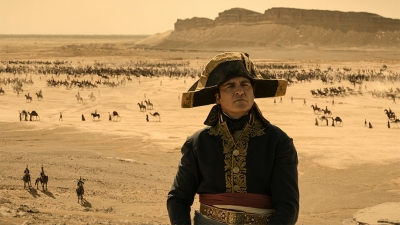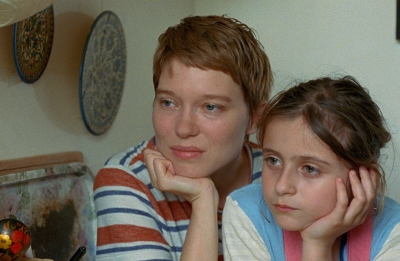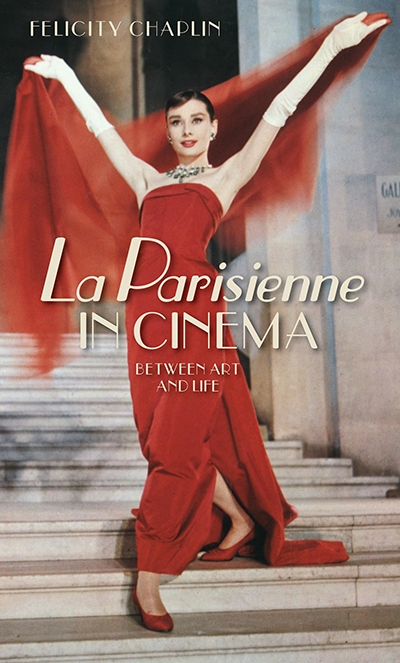Philippa Hawker
Ridley Scott’s Napoleon Bonaparte is petulant, over-confident. He likes to make animal noises and is often ill at ease. He is deeply infatuated with his wife. He can fall asleep at crucial moments. His ambitions are boundless, his limitations often comical. He’s very into cannons. He combines the extraordinary and the extremely ordinary in disconcerting ways.
... (read more)In French filmmaker Mia Hansen-Løve’s One Fine Morning (Un beau matin), books play a significant role: as physical objects, gifts, talismans, sources of connection, works in progress. Above all, books can represent a life.
... (read more)We invited some writers, film critics, and film professionals to nominate their favourite film – not The Greatest Film Ever Sold, but one that matters to them personally.
... (read more)'La Parisienne' in Cinema: Between art and life by Felicity Chaplin
To highlight Australian Book Review’s arts coverage and to celebrate some of the year’s memorable concerts, operas, films, ballets, plays, and art exhibitions, we invited a group of critics and arts professionals to nominate some favourites.
... (read more)Movie Journal: The rise of new American cinema 1959–1971 by Jonas Mekas
French writer-director Stéphane Brizé's The Measure of a Man (La loi du marché), looks at first to be a character study with a quasi-documentary feel, then takes a disconcerting turn. At its centre is Vincent Lindon (Welcome [2009], Mademoiselle Chambon [2009]), a robust, often demonstrative actor ...
... (read more)Ripping Open the Set: French Film Design, 1930–1939 by Ben McCann
Don DeLillo’s 2003 novel Cosmopolis could be described as a rarefied CBD road movie, and the same might be said of David Cronenberg’s new film adaptation, an unnervingly faithful, uncomfortable, and elusive version of the book. Cronenberg, a consistently absorbing and provocative director, is still probably best known for early, visceral works such as Videodrome (1983) and The Brood (1979). His biggest hit is a remake of The Fly (1986). He has made some fine literary adaptations: an elegant, disturbing engagement with J.G. Ballard’s Crash (1973); an intelligently claustrophobic take on Patrick McGrath’s Spider (1990). His version of William Burroughs’s Naked Lunch (1959) is odd, flawed, and inventive. He has not made a film from an original screenplay since eXistenZ in 1999.
... (read more)






